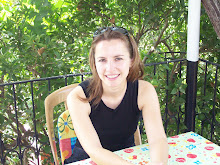 Image via Wikipedia
Image via Wikipedia
Many foreigners in Turkey drive cars with licence plates with MA or MB on them. These "foreigner" plates are also known as blue plates, but are not actually intended to identify drivers as foreign.
Rather, these plates indicate that the car was either brought into the country by a foreigner or bought in Turkey by a foreigner, and that said foreigner invoked their right to pay no Turkish taxes on the car -- a substantial savings for the car's owner!
Without going into the technicalities of who can own and drive a blue plate car and how to get one, let me tell you why I decided not to to take advantage of my right to the blue plate special and passed up on a ten-year-old Volvo station wagon for only 2000 Euros.
- Being foreign doesn't automatically entitle you to a blue plate; I qualify because of my work visa. Should I ever decide to stop working, I'd either have to sell my car quickly, or "park" it in a duty-free zone.
- I could only sell to another foreigner.
- No one else can drive the car (a slight overstatement, as my Turkish husband could get
special permission to drive it) Image by CARLOS62 via Flickr
Image by CARLOS62 via Flickr - A hefty deposit or security of some sort (calculated according to the car's value) needs to sit in your bank account.
- Just like a work visa and a resident permit, the plates need to constantly be renewed -- except whereas my employer takes care of the former, I'd have to deal with Turkish bureaucracy on this one. And like anything involving foreigners in Turkey, the process is longer and more complicated than for Turkish citizens -- this would be no routine plate renewal.
- Every time I leave the country, I'd be supposed to "park" the car in the above-mentioned duty-free zone.
 Image via Wikipedia
Image via Wikipedia
I'm still thinking about that Volvo wagon for just 2000 Euros. Even though I've made my decision, I think it'll take me a while to get over the thought of what could have been ...
Disclaimer: as is often the case in Turkey, conflicting information exists and it is sometimes difficult to be sure that information is correct. The above is a summary of the strictest version of the rules I've heard governing blue plates; I've heard for example that people just leave their cars at home when they travel abroad and that it isn't a problem.
![Reblog this post [with Zemanta]](http://img.zemanta.com/reblog_e.png?x-id=8017491e-f7e9-4dae-bdf9-3bd393d68add)








![Reblog this post [with Zemanta]](http://img.zemanta.com/reblog_e.png?x-id=db5f0abe-ca76-4c6a-b45d-cc9153413405)








